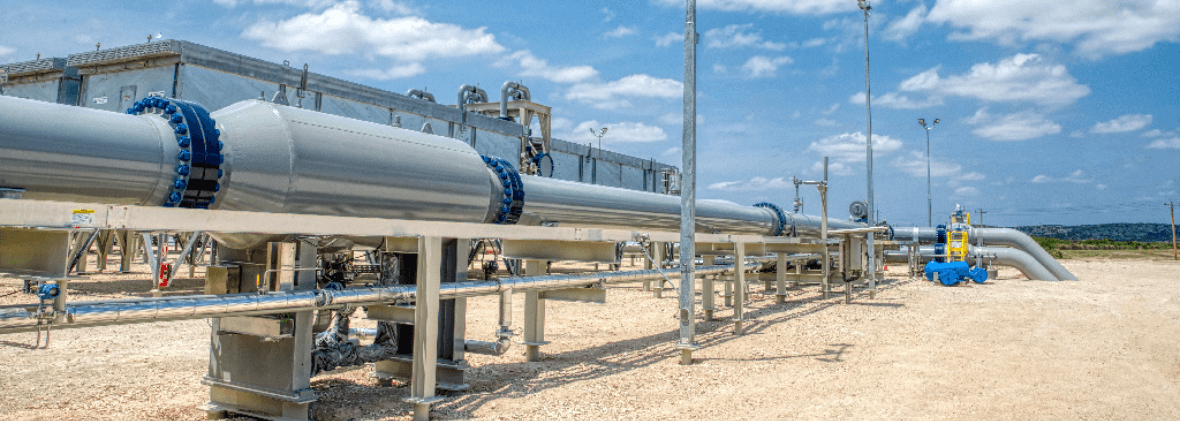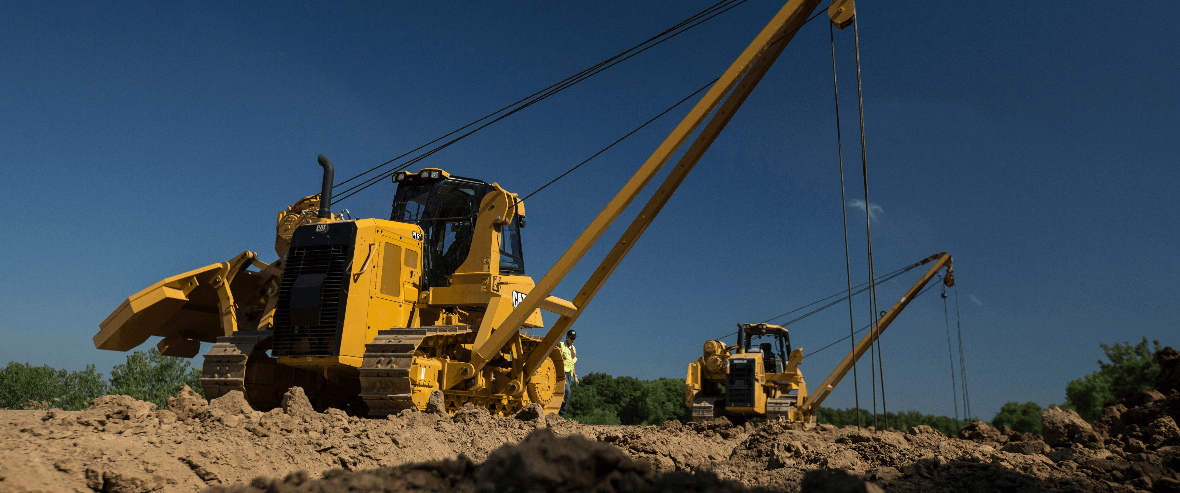Superior Rentals near me: cost guide for project managers
A Comprehensive Overview to the Numerous Kinds of Oil Field Equipment and Pipeline Equipment Available
The oil and gas sector counts heavily on specific equipment for reliable removal and transport. Various kinds of equipment, from piercing rigs to storage space containers, play crucial roles in this complicated process. Each piece of devices serves distinct features that add to overall functional success. Recognizing these components is important for any individual associated with the market. As the sector develops, so also do the modern technologies that sustain it. What advancements are on the perspective?

Drilling Rigs: The Backbone of Oil Exploration
Drilling rigs work as the crucial equipment in the domain of oil exploration, allowing companies to gain access to hydrocarbon books hidden deep under the Planet's surface area. These rigs can be found in various kinds, including land rigs, offshore rigs, and mobile units, each designed to operate in certain atmospheres. Geared up with innovative innovation, drilling rigs can permeate geological formations with accuracy, guaranteeing reliable resource removal. The architectural honesty and operational capabilities of these rigs are critical, as they must endure extreme problems and considerable pressures. The choice of an exploration rig influences the overall job cost and timeline, making it an essential factor to consider for oil business looking for to maximize their exploration initiatives and make the most of productivity in their operations.
Pumps: Necessary for Liquid Movement
In the oil removal process, the role of pumps is significant, helping with the motion of liquids throughout various phases of production. Pumps are vital for moving unrefined oil, water, and other liquids from underground reservoirs to the surface area and after that through pipelines to refineries. They can be found in different kinds, consisting of centrifugal, positive variation, and completely submersible pumps, each serving specific functions based on the fluid qualities and operational demands. Centrifugal pumps are generally made use of for their efficiency in high-flow applications, while favorable variation pumps succeed in dealing with viscous liquids. The choice of pump influences general effectiveness, operational safety and security, and maintenance expenses. Appropriate choice and upkeep of pumps are vital for maximizing production and decreasing downtime in oil field procedures.
Shutoffs: Controlling Flow and Pressure

Valves play a crucial duty in taking care of the flow and stress of fluids within oil areas and pipes. Numerous sorts of valves offer distinct applications, each made to fulfill particular functions essential for efficient operation - Superior Rentals reviews. Comprehending the qualities and usages of these shutoffs is necessary for optimizing system performance and safety and security
Sorts of Valves
Necessary parts in oil field operations, valves play an important role in regulating the circulation and pressure of liquids within pipes and devices. Numerous kinds of valves are used to fulfill the diverse needs of oil and gas production. Typical types consist of gate valves, which give a straight-line circulation and marginal stress decrease; globe shutoffs, recognized for their strangling capabilities; and sphere valves, identified for their fast on/off control. Additionally, check shutoffs prevent backflow, while butterfly shutoffs offer a lightweight solution for regulating flow. Each valve type is made with particular products and setups to endure the severe problems typically discovered in oil fields, making sure reliability and effectiveness in operations. Recognizing these types is vital for efficient system monitoring.
Valve Applications and Functions
While various sorts of valves offer distinctive functions, their main applications revolve around managing circulation and stress within oil and gas systems. Valves such as gateway, globe, and ball shutoffs control fluid motion, making sure peak performance and security. Gate valves are frequently made use of for on/off control, giving marginal flow resistance. World shutoffs, on the other hand, deal exact flow regulation, making them ideal for strangling applications. Sphere shutoffs are preferred for their quick procedure and tight sealing capacities. Additionally, pressure alleviation valves are critical for protecting against system overpressure, guarding devices integrity. On the whole, the suitable selection and application of shutoffs enhance functional effectiveness, ensuring the trusted transport of oil and gas via pipes and handling centers.
Compressors: Enhancing Gas Transport
Compressors play a critical function in the efficient transport of all-natural gas, making sure that it moves efficiently through pipes over long ranges. These devices boost the pressure of gas, enabling it to overcome friction and elevation adjustments within the pipeline system. Furthermore, compressors promote the harmonizing of supply and demand, fitting variations in usage and manufacturing prices. Different sorts of compressors are employed in the market, consisting of centrifugal, reciprocating, and rotary screw compressors, each offering distinctive advantages based on the functional needs. Routine upkeep of these compressors is necessary to optimize efficiency and reduce downtime, inevitably adding to a trustworthy gas transportation network. Their vital feature underscores the importance of compressors in the general oil and gas facilities.
Storage Tanks: Safe and Reliable Fluid Administration
Efficient transportation of gas depends on numerous support group, one of which is the appropriate monitoring of tank. These storage tanks play an essential role in safely having fluids, making sure that functional efficiency is maintained while reducing ecological threats. Built from sturdy products, they are developed to hold up against high pressures and destructive elements. Appropriately sized and strategically situated, storage tanks facilitate the smooth flow of all-natural gas and various other liquids, stopping bottlenecks in supply chains. Regular maintenance and surveillance are important to spot leaks or architectural problems, promoting safety and conformity with governing requirements. Ultimately, the effective monitoring of tank is critical for the total stability and dependability of the oil and gas industry's liquid handling systems.
Pipeline Solutions: Infrastructure for Transport
Pipeline systems serve as the backbone of the oil and gas market, helping with the efficient transport of hydrocarbons over huge distances. These systems contain different components, consisting of pipes, shutoffs, pumps, and compressors, all thoroughly developed to assure seamless flow. The products used in pipeline building and construction, commonly steel or high-density polyethylene, are picked for sturdiness and resistance to corrosion. Pipeline networks can extend across land and water, attaching production websites to refineries and distribution facilities. Furthermore, progressed innovation makes it possible for real-time tracking of circulation rates and stress degrees, enhancing functional performance. The tactical positioning of visit the website these pipelines reduces ecological impact while making the most of source ease of access, consequently playing an essential function in conference energy demands internationally.
Safety And Security Equipment: Guaranteeing Employee and Environmental Management
The procedure of pipeline systems, while important for energy transport, also provides substantial safety difficulties for employees and the setting. Safety equipment plays a considerable duty in mitigating these dangers. Individual protective equipment (PPE) such as headgears, handwear covers, and non-slip footwear safeguards employees from physical threats. Additionally, gas detection systems keep track of for leakages, making certain that harmful substances do not position a danger to employees or the surrounding ecosystem. Emergency shutdown systems are critical for quickly halting operations during a crisis, avoiding prospective catastrophes. Spill control materials, including absorbents and barriers, are essential for lessening ecological effect. Generally, purchasing all-inclusive Full Report security tools is essential for maintaining operational integrity and safeguarding both workers and the setting in the oil and gas sector.

Frequently Asked Concerns
Just how Do I Select the Right Oil Field Equipment for My Task?
Choosing the right oil area equipment includes reviewing project requirements, budget plan constraints, and functional needs. Consider elements such as tools reliability, compatibility with existing systems, and the vendor's online reputation to guarantee peak performance and security.
What Are the Upkeep Demands for Oil Field Equipment?
Maintenance demands for oil field devices consist of routine examinations, lubrication, and prompt repairs. Operators must additionally stick to manufacturer guidelines, monitor performance metrics, and warranty compliance with safety and security guidelines to boost longevity and effectiveness.

Just How Can I Make Sure Compliance With Environmental Laws?
To guarantee conformity with ecological guidelines, companies should perform routine audits, apply ideal techniques, buy training, preserve correct documentation, and remain upgraded on regulations (Superior Rentals reviews). Cooperation with environmental companies can additionally boost adherence to guidelines
What Is the Typical Lifespan of Pipeline Equipment?
The average life expectancy of pipeline devices typically varies from 20 to half a century, relying on variables such as worldly top quality, environmental problems, and upkeep practices. Routine inspections can substantially affect longevity and functional efficiency.
How Do I Safely Transport Oil Field Equipment to Remote Locations?
Moving oil area devices to remote areas calls for careful planning, including route assessment, securing authorizations, used wheel loaders for sale near me making use of ideal vehicles, and making sure security methods are adhered to. Proper training and communication amongst teams are crucial for effective transport.